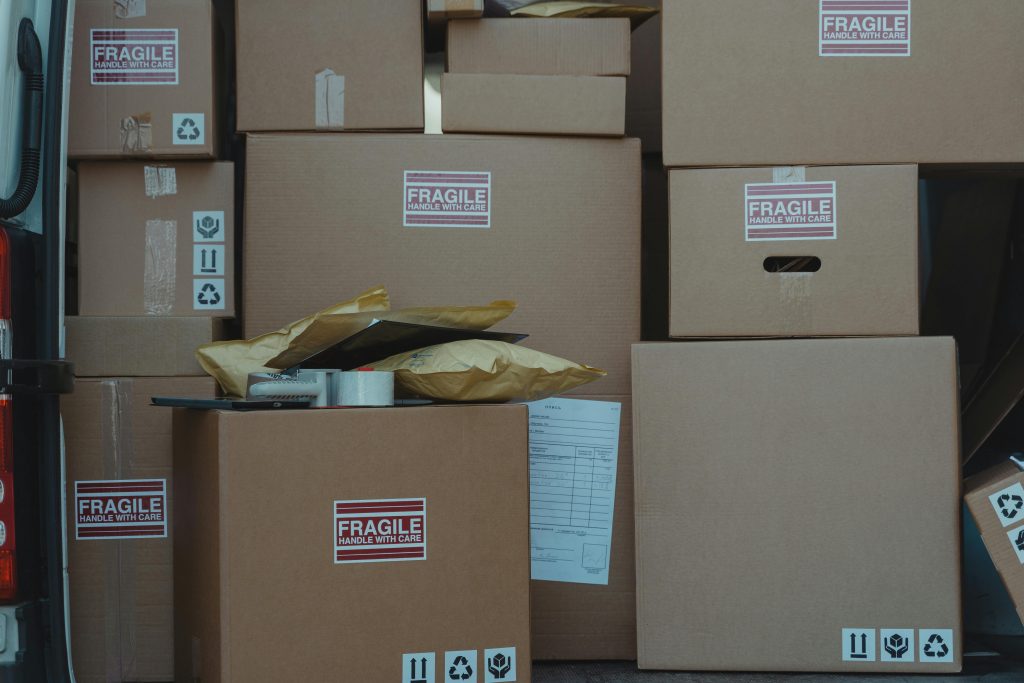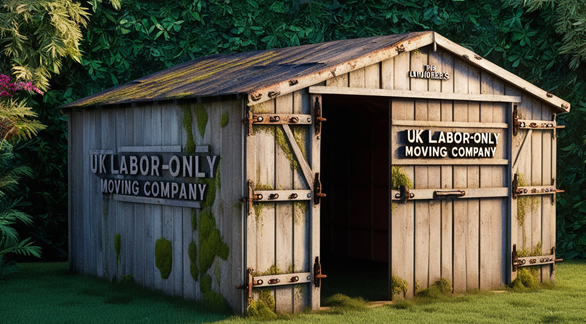The age-old adage rings true: change is the only constant in life. And while some changes are welcomed with open arms, others, like moving house, are often met with a mix of anticipation and apprehension. Consistently ranked among life’s most stressful events, relocation—even when brimming with the promise of new beginnings—often triggers a rollercoaster of emotions. Beyond the sentimental farewells to familiar spaces and the inherent uncertainty that accompanies settling into a new environment, the often-daunting financial aspects of moving weigh heavily on our minds.
Engaging the expertise of a professional moving company provides an invaluable safety net, alleviating the physical burdens and logistical complexities of transporting our lives from one place to another. However, embarking on this journey without a clear understanding of the associated costs can quickly transform even the most meticulously planned relocation into a source of anxiety. This comprehensive guide delves deeper than ever before into the intricate world of Cost of Moving Company UK, equipping you with the knowledge and insights needed to confidently navigate the financial landscape of your move and pave the way for a smooth, successful, and budget-friendly transition.
Demystifying the Price Equation: Factors That Shape the Cost of Hiring a Moving Company
Just as every home holds a unique tapestry of memories and experiences, each move presents a unique set of circumstances that influence the final price tag. Contrary to popular belief, there is no magic, one-size-fits-all formula for calculating moving costs. A myriad of factors come into play, some readily apparent and others potentially overlooked until the final bill arrives. Arming yourself with a comprehensive understanding of these key cost influencers is the crucial first step in gaining control of your moving budget and mitigating unwelcome surprises.

1. Distance: Bridging the Miles, Unpacking the Cost Implications
Distance emerges as the most intuitive cost driver when it comes to moving. It stands to reason: the further your belongings need to journey, the higher the overall expenses. However, the cost impact of distance extends beyond mere mileage. Let’s unpack the contributing factors:
- Fuel Costs: Fueling the Journey & Your Bill:
It’s no secret that fuel prices are notoriously volatile, and these fluctuations inevitably influence the bottom line of any move involving ground transportation. Longer distances equal higher fuel consumption, a cost that is directly passed on to the customer.
- Driver Wages: Accounting for Time, Effort, & Expertise:
Increased distance translates to longer workdays for your moving team. This can result in overtime pay, mandatory rest breaks as stipulated by law, and, in the case of particularly long-distance relocations, the necessity for overnight accommodation. Reputable moving companies prioritize the well-being of their employees while adhering to legal regulations; factoring in these costs ensures fair treatment of all parties involved.

- Vehicle Wear & Tear: The Invisible Toll of Distance
It’s easy to overlook the often invisible costs associated with vehicle maintenance. Extensive mileage inevitably contributes to wear and tear on moving trucks, requiring more frequent servicing, replacement parts, and even premature replacement of vehicles in some cases. These seemingly minor expenses accumulate over time and contribute to the overall cost structure of moving services.
2. Volume of Belongings: Mastering the Art of Strategic Downsizing
Picture this: a studio apartment overflowing with belongings versus a spacious four-bedroom house showcasing minimalist decor. It’s readily apparent that moving the former requires significantly less manpower and truck space than relocating the latter. This is where the often-dreaded “D-word”—decluttering—becomes your secret weapon for budget management:
- The Liberating Power of Purging:
Moving presents a unique opportunity for a refresh—not just in terms of physical location but also in the context of our relationship with material possessions. Take a critical look at everything you own, from furniture and appliances to clothing, books, and those mysterious boxes residing in the back of closets.
- Transform Unwanted Items into Extra Cash:
Resist the urge to simply discard unwanted items. Embrace the age-old adage: one person’s trash is another person’s treasure! Leverage the reach and convenience of online marketplaces like eBay, Facebook Marketplace, Gumtree, and even niche platforms tailored to specific categories (fashion, antiques, etc.) If online selling isn’t your cup of tea, consider hosting a traditional “car boot sale” or exploring consignment shops in your area.
- Pay It Forward: Donate with Purpose:
For items in good condition that haven’t found buyers but don’t spark joy in your life, consider donating them to local charities. These organizations often rely on community support, and your generous donations can benefit those in need while simultaneously lightening your moving load.
3. Service Requirements: Customising Your Move & Managing Expectations
Modern-day moving companies have transcended their former reputation as mere “box movers.” They now offer a sophisticated menu of tailored services designed to elevate your moving experience from mundane to manageable—and in some cases, even enjoyable! However, it’s crucial to remember that this personalized approach comes with varying price points:
- Professional Packing & Unpacking: The Ultimate Convenience Factor
For many, the most daunting aspect of moving is the packing process itself—wrapping delicate items, navigating endless rolls of packing tape, and deciphering the Tetris-like logistics of maximizing space within boxes. If your budget allows for it and the thought of handling packing materials sends shivers down your spine, opting for professional packing and unpacking services provides unparalleled peace of mind and removes a significant layer of stress from the moving process. However, these premium services result in a higher overall price tag.
- Furniture Disassembly & Reassembly: Navigating the Puzzle of Large Items
Most of us have been there—irregularly attempting to maneuver a bulky sofa out a doorway that seemed deceptively larger during move-in day, resulting in scratched walls, frustrated movers, and potential damage to your prized furniture. Reputable moving companies often include basic disassembly of larger furniture items like beds and dining tables as part of their standard services, but complex dismantling (think antique armoires or intricately designed shelving units) or specific requests for reassembly at your new location will likely incur an additional cost.
- Fragile Item Packing & Handling: Entrusting Experts with Delicate Treasures
Your most treasured possessions deserve meticulous care throughout the move. Items like artwork, mirrors, antiques, musical instruments, or delicate glassware often require specialized packing techniques and materials to ensure their safe arrival. Professional movers are skilled in the art of cushioning, crating, and handling these fragile treasures, but you should anticipate additional costs associated with this specialized expertise.
- Piano Moving: Calling in the Specialists
The majestic piano—a beloved instrument often holding sentimental value and, perhaps more practically, a hefty weight. Moving a piano is not a task for amateur movers due to its weight, awkward dimensions, and delicate internal mechanisms. Professional piano movers possess the experience, knowledge, and specialized equipment to move your instrument safely and efficiently. However, as with all niche services, this specialized skillset often comes at a premium, often quoted as a separate line item in your moving estimate.
- Short-Term & Long-Term Storage: Bridging the Gap Between Homes
The ideal move unfolds with perfect timing—moving out of your current abode and seamlessly into your new haven with no hiccups. In reality, this synchronicity isn’t always achievable. Delays in closing dates, unexpected renovations, or even strategic choices (such as moving between long-term rentals) might necessitate short-term or long-term storage solutions for your belongings. Be prepared to budget accordingly if utilizing these services.
4. The Timing Tango: Avoiding Peak Season Price Hikes & Capitalizing on Flexibility
In the world of moving, timing is everything—especially when it comes to costs. Moving companies, much like airlines and hotels, experience cyclical demand fluctuations that impact pricing structures.
- Peak Seasons, Peak Demand, Peak Prices:
Spring and summer typically witness a surge in moving activity as people capitalize on warmer weather and coordinate their relocations with school holidays. This increased demand translates to higher prices as moving companies experience full schedules and sometimes need to allocate additional resources to meet the influx of bookings.
- Weekend Rush & the Allure of Convenience:
Similar to peak season dynamics, weekends—especially Fridays and Saturdays—are the most sought-after days for moving, mainly driven by the desire to minimize disruptions to work schedules and settle into a new home before the Monday morning rush begins. However, convenience often comes at a premium, with most moving companies offering slightly higher rates for weekend relocations.
- Flexibility Breeds Budget-Friendly Options:
If your circumstances allow for any degree of flexibility, seize the opportunity to leverage it to your advantage! Consider planning your move during the often-overlooked “off-season”—the autumn or winter months. While a snowstorm on moving day is less than ideal, chances are that moving companies will be less busy and therefore more amenable to offering discounted rates or flexible scheduling options. Even shifting your move to a midweek slot (Tuesday or Wednesday) as opposed to the highly coveted Friday can result in some savings.
5. Accessibility: Anticipating Unexpected Hurdles & Hidden Costs
The dream scenario: a single-story, detached house with a generously wide driveway leading to your front door—a mover’s paradise! The reality: sometimes our abodes present us (and our movers) with unexpected challenges. Accessibility issues, often overlooked during the initial excitement of securing a new home, can quickly escalate moving costs if not anticipated and factored into the equation.
- Stairway Struggles & the Cost of Elevation:
Navigating numerous flights of stairs while carrying heavy furniture, boxes, or appliances is both physically demanding and incredibly time-consuming. Movers are well-equipped to handle these challenges, but extra care and additional manpower might be necessary, potentially influencing the overall cost. Be upfront about the number of floors and accessibility of stairwells when requesting quotes from moving companies, allowing them to provide accurate estimates and avoid surprises on moving days.
- From Curb to Door: Bridging the Distance Gap
Ideally, the moving truck can park directly outside your front door, facilitating swift and seamless loading and unloading. Unfortunately, this isn’t always the reality, especially in bustling city centers or apartment complexes with limited on-site parking options. If your building lacks a designated loading zone or the walk from the nearest legal parking spot to your front door is considerable, expect a “long carry” surcharge to cover the extra time and effort required by your movers.
- Lift Logistics: Understanding Building Regulations & Potential Fees
While utilizing a building’s lift system might seem like a logical solution to staircase struggles, keep in mind that this might come with additional costs. Some buildings require residents to pay a fee for exclusive access to the lift during a move. Others mandate pre-booking specific time slots or require proof of insurance from your Cost of Moving Company UK before granting permission.

Estimating Your Move Costs: A Realistic Glimpse into Average Price Ranges
While a universally applicable price tag for a “standard” move remains elusive (each relocation being as unique as the individuals orchestrating it), familiarizing yourself with average cost figures provides a valuable reference point for initial budgeting and allows for realistic expectations when requesting quotes from various moving companies. However, always bear in mind these are rough estimates that will fluctuate depending on factors outlined in previous sections:
1. Local Moves (under 50 Miles):
- Basic Services & Smaller Properties: If you’re relocating within a relatively short radius and your belongings are relatively modest in volume, you can anticipate a cost ranging between £300 and £800 for basic moving services, which typically encompass a small team of movers and a standard-sized moving van.
- Larger Homes, Bulky Items, Special Requirements: Factors such as spacious houses, apartments on higher floors requiring extensive stair navigation, numerous heavy or bulky possessions, or additional service requests will likely nudge the cost towards the upper end of the estimated range—closer to £1500.
2. Long Distance Moves (Over 50 Miles):
- Base Rates & the Mileage Multiplier: Relocations requiring transportation beyond a 50-mile radius inevitably incur higher costs, with mileage acting as the primary driver. Anticipate a base rate starting around £800 to £1500, understanding that this figure will fluctuate based on factors including:
- Mileage Tiers & Incremental Charges: Moving companies often operate with a tiered pricing system based on mileage thresholds—the further you travel, the higher the cost per mile.Overnight Accommodations: For moves covering significant distances that are not logistically feasible to complete within a single day, budget for the cost of overnight stays for the moving team to ensure their rest, safety, and compliance with driving regulations.
- Service Choices & Their Financial Impact: Opting for a minimalist, no-frills service focused solely on transportation from one point to another will result in a lower cost compared to selecting a comprehensive, white-glove experience encompassing packing, unpacking, furniture dismantling, and specialized item handling.
3. International Moves: Unpacking the Complexity, Navigating Costs:
- Embrace the Unique Dynamics: Unlike domestic relocations, international moves operate on a wholly different scale and require specific expertise and logistical arrangements, inevitably reflected in their overall price.
- Shipping Containers: Your Global Transportation Solution: Rather than the familiar moving trucks utilized for local and national moves, international relocations employ standardized shipping containers to transport your belongings across oceans or borders. The size of the container required—often determined by cubic meters (CBM)—directly correlates to the overall shipping cost.Navigating the World of Customs Clearance: Crossing international borders involves navigating the often complex realm of customs regulations. Hiring a reputable international moving company provides invaluable guidance and often includes customs clearance services in their overall pricing. However, it’s essential to ensure you understand the documentation requirements for both your country of origin and destination country well in advance to avoid any potential delays or unexpected expenses.
- Factoring in Potential Storage Costs: Similar to domestic moves, unforeseen circumstances or strategic choices can lead to a gap between vacating your current residence and occupying your new one in your new country. Factor in potential costs for short-term or long-term storage solutions for your belongings, whether at the origin or destination.
Moving a 4-Bedroom House: Specific Considerations for Budgeting
As we’ve established, providing precise cost estimates for a hypothetical move without factoring in your specific requirements is a fool’s errand. However, recognizing commonalities within house sizes provides helpful budgetary guidance:
- Local Moves (Under 50 Miles): A Reasonable Range to Anticipate A standard move for a 4-bedroom home within a local radius typically falls within the £800 to £1500 price range.
- Navigating the Long Haul: Adjusting Expectations for Distance For long-distance relocations (exceeding 50 miles), mentally prepare for a higher starting point—typically starting at £1500. Mileage plays a pivotal role, often exceeding the impact of factors such as the volume of belongings or a number of rooms within your house.

Unlocking Savings: Strategic Tips for a Budget-Conscious Relocation
Just because relocating is an inherently expensive life event, it doesn’t have to induce heart palpitations each time you glance at your bank balance! With some proactive planning, savvy strategies, and a dash of resourcefulness, you can unlock opportunities for minimizing overall costs without sacrificing the efficiency or success of your move:
1. The Power of Comparison: Let the Moving Quotes Flow!
Shop Around:
Avoid the temptation to settle for the first seemingly reasonable moving quote you receive. Approach securing a Cost of Moving Company UK, with the same diligence you’d apply to any major financial decision. Request quotes from a minimum of three reputable companies operating in your area. Don’t hesitate to reach out to a few extra if something within a specific company’s online presence piques your interest.
Dismantle the Fine Print:
Once you’ve received those coveted moving quotes, resist the urge for a cursory glance! Devote time to dissecting each quote methodically, scrutinizing the details that can mean the difference between a budget-friendly move and an unexpected financial strain:
- Services Included: Does the quoted price encompass only basic transportation, or does it encompass desired additional services such as packing, unpacking, or furniture assembly?
- Payment Terms & Schedules: Clarity regarding payment schedules (due dates, acceptable payment methods) can alleviate financial stress and potential misunderstandings later on.
- Transparency is Key: Reputable moving companies are upfront about their pricing structures. Scrutinize each quote for transparency regarding additional charges for factors such as long carries, packing materials (if opting for professional packing), or potential weekend or peak season surcharges.
-Understanding Liability & Insurance Coverage: Mishaps, although hopefully rare, can occur during a move. Thoroughly reviewing the terms of insurance coverage provided by the Cost of Moving Company UK, can provide peace of mind and financial protection in the event of damaged or lost belongings.
2. Become a Decluttering Guru: As the wise have said, “The first step in solving a problem is recognizing there is one.” If minimizing moving costs is your objective, acknowledging that your attachment to unused possessions is part of the problem can be strangely empowering!
- Ruthless Decluttering is Your Friend: Take advantage of this opportunity to rid your life of things that no longer serve a purpose. Embrace the joy of donating items in good condition to charities where they can be cherished by others, host a profitable yard sale, or become a pro at navigating online selling platforms to convert clutter into cash that can offset other moving expenses.
3. Unleash Your Inner Packing Professional:
- Cost-effective Packing Solutions: While incredibly convenient, the luxury of professional packing services doesn’t come cheap. With careful planning, sufficient time allocation, and a strategic mindset, you can easily take on the packing process yourself, significantly reducing overall moving costs.
- Seek Out Free Packing Materials: Supermarkets often have a surplus of sturdy cardboard boxes perfectly sized for packing. Contact local retail stores, especially those receiving regular deliveries of bulky items, and politely inquire about acquiring discarded boxes—one person’s recycling bin can be your packing material treasure trove!
- The Art of Protective Packing: Protect your belongings with a combination of bubble wrap (which can be purchased in bulk for cost savings), packing paper (often found at bargain prices in discount stores), or even repurposing old newspapers, blankets, and towels for padding.
4. Strategic Timing: A Masterclass in Cost Optimisation:
If you possess even a modicum of flexibility within your moving timeline, use it to your advantage. Weekday moves are significantly more affordable compared to the weekend rush. Explore the possibility of moving during off-peak seasons (autumn or winter) when demand, and therefore prices, tend to be lower. Even adjusting your move to a Tuesday as opposed to a highly sought-after Friday can yield some savings.
Moving Forward with Knowledge & Confidence:
Relocating represents far more than merely transporting boxes and furniture from one point on the map to another; it represents the exciting—albeit often daunting—cost of moving company USA into a new chapter. It’s an experience deserving of meticulous planning, strategic financial navigation, and an unwavering belief that within those cardboard boxes, amongst the bubble wrap and strategically placed furniture pads, lie the foundations of a fulfilling future in your new home. By arming yourself with an intricate understanding of the factors driving the cost of hiring a moving company, actively engaging in cost-effective measures, and employing strategic planning tactics, you can embrace this next chapter with confidence, excitement, and the peace of mind knowing that you’ve mastered the move and positioned yourself for a smooth and successful relocation.




